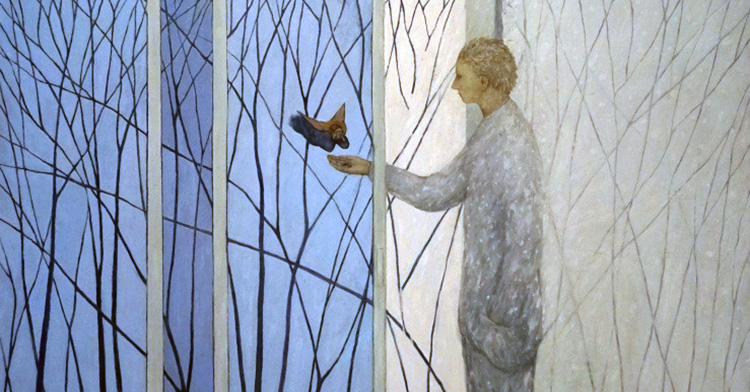This summer feels different.
I’m a relative newcomer to the South — I moved to North Carolina in 2018 — but I thought that I’d experienced my share of heat and humidity in these past seven years. A Southern summer, like a Midwestern winter, is something to muscle through.
But this year feels different, and not just in North Carolina. Across the country, heat warnings and advisories have been popping up with alarming regularity. Extreme heat seems to last ever longer.
Right now all I can do is remind myself it won’t feel like this forever, even as I recognize that hotter and hotter summers are going to be our new normal. Right now all I can do is repeat my magic word “October,” which is objectively the best time of year around central North Carolina.
This year’s particular slog through summer has me thinking about a question that seems almost silly to put in writing: namely, how often do I remember the existence of seasons? Winter, spring, summer, fall, yes — but also seasons of life and work and the church. How often do I remember that so much is temporary, that so much will pass?
Maybe I disregard “seasons” because the word has become something of a cliche in the Christian world. I hear it and imagine a kitschy, fake-distressed-wood sign proclaiming, “To everything there is a season.” I hear a well-meaning “this is a hard season” or “in this season of life ….”
Like other cliches, “season” can become a stand-in for something that’s harder to say and to unpack. But I’m wondering now if I disregard the word and the very real concepts behind it at my own risk.
A line from a recent story about Plainsong Farm in Michigan bounced around my brain long after I read it. The farm’s director of faith-based programs shared, “When we go from one climate-controlled space to another, we don’t know our relationship with creation because we don’t have to.”
It prompted me to wonder if I try to set my life, no matter the season, at a steady, comfortable 68 degrees, requiring no need for adjustment.
Because how often do I think of the seasons — of the year, the church calendar, work or life — as reasons for me to approach each day anew? When you live in a “climate-controlled” way, you can make valiant (and often successful) attempts at ignoring the season you’re in.
You can expect yourself to reach certain standards, hit particular milestones, show up in the way you always have, regardless of what might be going on around you — whether that’s extreme heat, news of war and injustice, or the baby Jesus about to be born.
What if, instead, you recognize a season as an invitation to do things differently for a while? To follow the cues given by creation and the calendar?
At this point in my seasonal thinking, I bump up against the reality that many of us cannot (literally) afford to follow all those cues. Sure, it would be lovely to be most productive in fall and spring, when crisp air or blooming trees inject me with a bit more energy. It would be nice to spend summer and winter in slower states, seeking shade or burrowing away.
As Renita J. Weems writes in her wonderful book “Listening for God”: “I wish I could do as the bear does and crawl in a hole and hibernate when it’s cold and barren outside, but life does not permit human beings such luxuries. I have to produce when I should be sleeping.”
Indeed, the reality of most human beings is that we have to be awake and contributing to society when we should probably be asleep. But even if we can’t do as the bear does, might there be a few small ways that seasonality can break though the ground of our daily lives?
I was struck by how pastor and writer A. Trevor Sutton recently described a unique way of integrating work and rest.
“A more integrated — and realistic — approach is seeing them as threads woven together into the tapestry of daily life,” he writes. “Every week, hour and minute is interwoven with work and rest.”
He suggests how this might look in our professional lives: “One way is by discerning what aspects of your work are restful and energizing. Some of our work tasks drain our resources, while other work-related tasks leave us more energized. Our daily work needs to be interwoven with that which is life-giving.”
With this kind of rest/work integration in mind, what might a season/climate control integration look like? The answer will be different for everyone, but the draining heat of this summer has me looking a little closer at my own limits.
Yes, I still need to produce when I might want to be snoozing in the shade. But maybe today there is something I can say “no” to, so I can make a little extra space for rest — knowing there may come brisk autumn days when I want to say “yes” to more of what brings joy and life.
Maybe today I can ask a few seemingly simple questions: What season am I in? What is this day asking of me? What can I give away? What can I let go of? What might I find if I stood outside for a few moments?
It prompted me to wonder if I try to set my life, no matter the season, at a steady, comfortable 68 degrees, requiring no need for adjustment.




























